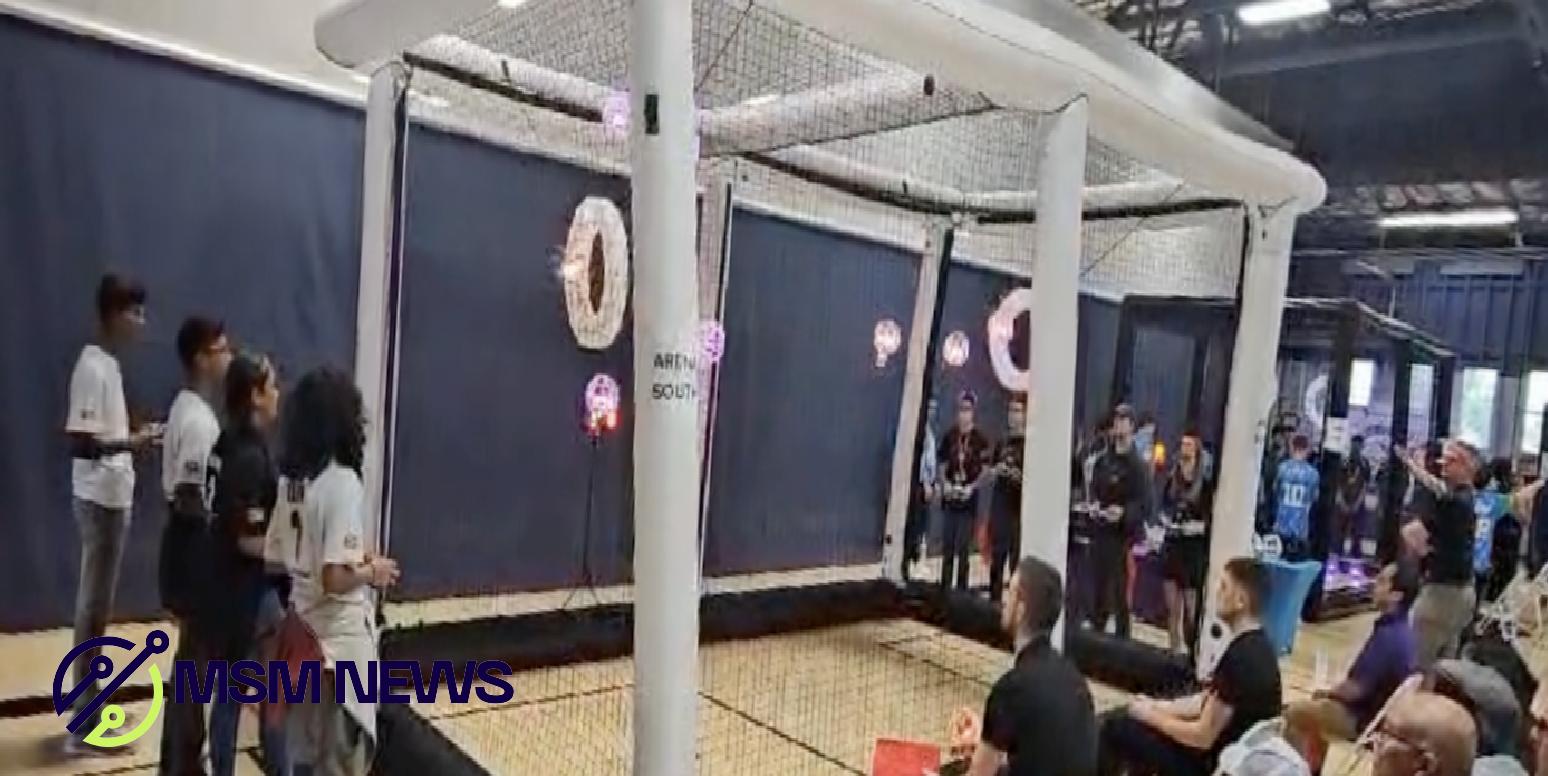by Karen Abrams, MBA, EdD ’25
Students across the globe today are presented with increasingly innovative ways to blend learning with play. Drone soccer, a new and exciting sport that has garnered the interest of educators and students alike, exemplifies this blend by offering a competitive environment rich in technical skill-building. For Guyanese parents, the STEMGuyana after-school program presents a compelling case for their children’s participation. Guiding the expansive launch of the Drone Soccer initiative throughout Guyana and the Caribbean is Leon Christian, known for his past achievements as a Guyana national basketball player, he now leads as the President of Guyana Drone Soccer. Christian’s direction is transforming this inventive educational program into a widespread movement, set to motivate a new generation by merging the fields of athletics and technology.
Drone soccer is a game that exists at the intersection of competition and state-of-the-art drone technology. Players navigate drones—safely housed within protective spheres—around an arena, aiming to outmaneuver opponents and score goals. This sport not only sharpens technical abilities and promotes teamwork but also serves as a practical introduction to the principles of aerodynamics and robotics.
The incorporation of drone technology into team sports like drone soccer can significantly boost student engagement, pique interest in STEM careers, enhance soft skills, and potentially improve school attendance. The program’s philosophy is rooted in constructionist and experiential learning theories, which advocate for active, hands-on experiences as a cornerstone of effective education.
Moreover, the program embraces gamified learning theories, infusing non-game environments with game-like elements to heighten motivation and engagement. Through leaderboards, points, and levels, students are encouraged to work together to develop technical skills and strategic thinking. This aligns with Kolb’s Self-Determination Theory, which posits that fulfilling the human needs for autonomy, competence, and relatedness through game elements can lead to enhanced learning experiences.
Experiential learning theories also play a pivotal role in the program, emphasizing that the most profound learning occurs through direct experience. Students engage in flying drones, strategizing, and collaborating, with the learning process being both reflective and iterative, allowing for continuous improvement based on real-world outcomes and team interactions.
In essence, drone soccer is a gateway to an engaging and formative experience for Guyanese students. It offers hands-on learning, cultivates technical and soft skills, and fosters a sense of community and teamwork. For parents in Guyana looking for an educational activity that is both enriching and enjoyable, STEMGuyana’s drone soccer program stands out as a unique and promising option, poised to set their children on a trajectory toward success in a rapidly advancing technological world.



Leave a Reply